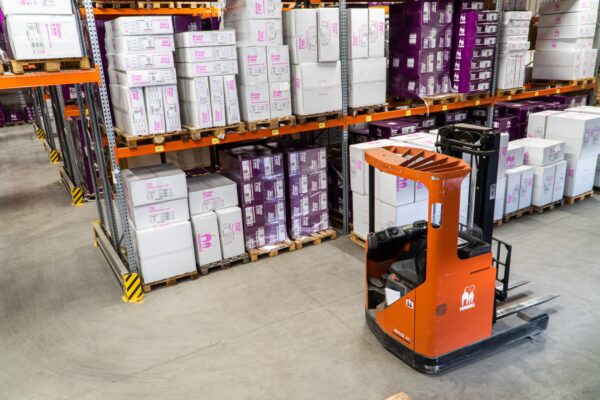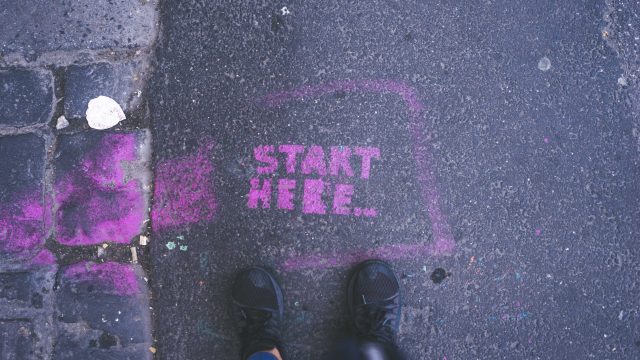Alibaba is an extremely popular online wholesale sourcing platform, allowing buyers in the West to connect with factories and trading partners in China in a way that would previously have been impossible. Alibaba has become one of the top choices for Amazon FBA sellers looking to source wholesale products to sell, but for the novice seller, buying on Alibaba can be overwhelming.

In this article, we’re going to teach you everything you need to know about sourcing products on Alibaba to sell on Amazon FBA, as well as the pitfalls and scams you need to watch out for.
What is Alibaba and why is it relevant for Amazon FBA wholesale sourcing?
Alibaba was founded in 1999 and is one of the leading B2B wholesale sourcing channels on the internet. It allows buyers, primarily based in the West, to connect with suppliers and manufacturers primarily based in China. Whereas previously you might have to connect with someone local who would then source and buy items from factories on your behalf, Alibaba (and similar sites such as Banggood or DHGate) allows you to connect directly with these factories, saving you money.
Alibaba has also in recent years taken lessons from the likes of eBay and Amazon, and has introduced escrow services and other buyer protection mechanisms that make it very popular for Amazon FBA wholesalers to source products. Alibaba also allows you to communicate via live chat directly with sales agents for your chosen supplier, most of whom are available during US business hours and who speak good English.
Sadly, as is the case with many online marketplaces, Alibaba has its fair share of fraudsters and counterfeiters, so it’s crucial that you vet your suppliers carefully by requesting samples and verifying that the supplier actually is who they say they are.
Finding the right suppliers and negotiating terms
Different types of suppliers on Alibaba
There are two main types of supplier you find on Alibaba – manufacturers, and trading companies. When you deal with a manufacturer, you are dealing directly with the factory that will manufacture your wholesale goods. You’ll generally deal with a sales agent who will speak English. Dealing directly with a factory generally gives you the lowest possible price per unit.
Trading companies are businesses that specialise in sourcing products from different manufacturers. They are effectively a middleman between you and the factory, but can offer a wider range of products than individual manufacturers and also can offer lower MOQs. You may pay more per unit by going through a trading company, however.
No matter who you deal with, you should ensure you can use the trade assurance program when dealing with them, as well as making sure they’ve been assessed by a third-party company to ensure their production and quality control standards are up to scratch.
Key questions to ask your supplier
Once you’ve found a supplier who’s able to provide the product at the price point that’s acceptable to you and can provide enough volume, it’s time to approach them and discuss terms. You’ll need to ensure you’re able to get at least the following information out of the supplier before you can go any further:
MOQ (Minimum order quantity)
Most sellers won’t sell anything to you unless you order over a certain amount. For some sellers this might be 100 units, for others it could be 100,000 units. This could be negotiable but at the very least what the supplier tells you in the first instance is likely to be pretty close to what you’ll get – for example a supplier advertising a 10,000 MOQ is very unlikely to ever negotiate down to a MOQ of 50.
Lead times
How long does it take for the supplier to manufacture and package the product? Some suppliers might have a turnaround time of a few days – for others it might be weeks or even months. And this doesn’t include transit time – you’ll need to factor this in separately. Also be aware that if you order a third party inspection, this will likely delay the lead time further.
Pricing for different quantities
Most sellers on Alibaba will offer bulk discounts – i.e. someone ordering 10,000 units will pay less per unit than someone ordering 100 units. Make sure you’re able to negotiate this especially if these discounts aren’t listed up-front.
Payment terms
Does the seller require payment straight away before they’ll even start manufacturing? Or can you negotiate 30, 60 or 90 day payment terms? Make sure you know what works for you and your business before you enter into any deal, and always make sure you use Alibaba’s Trade Assurance escrow program when sending payment to any supplier.
Shipping methods
Do you have a preferred carrier? Or are you happy for the carrier to just choose whichever is cheapest? Keep in mind that the cheapest carrier from China is likely to be EMS which will be sea freight and will likely be handled by the USPS when it arrives in the US, whereas a shipment sent via UPS or FedEx will likely go by air, and will be handled by each carrier from start to finish, minimising any potential delays.
Supplier location
This is more relevant if you’re dealing with a factory directly, but where in China is your supplier based? For example, many Alibaba sellers are based in Shenzhen which is very near Hong Kong, meaning that shipping to the US is very easy – items don’t have far to go before they’re loaded onto a plane in Hong Kong and shipped out of China. If your factory is somewhere very remote, however, you need to account for the fact that you may be hit with shipping delays. Make sure your factories are within 50 miles of major port cities such as Shanghai, Hangzhou, Guangzhou, Hong Kong and Tianjin.
Negotiation
Once you’ve determined that the terms are favourable and you’ve found your ideal product, now’s the time to start negotiating. See if the factory will move on their MOQ, especially if you’re just testing the waters with a new product. It’s not advisable to order anything in any significant quantity if you haven’t tested the waters yet, so make sure that you’re ordering in quantities that you know you can sell.
Negotiating favourable payment terms is also crucial, as if you are able to come to an agreement where there is, for example, 30% paid upfront and 70% paid on receipt and inspection of the items, this protects you immensely from potential quality control or shipping issues – as if you’re not happy, you simply withhold payment until the seller puts things right.
A lot of this will come down to what’s favourable to you and your business, but don’t be afraid to push the boundaries and score yourself a better deal, because if a particular factory won’t work with you on your terms, you can guarantee there’s another on Alibaba that will.
Documentation – written agreements
We can’t stress this enough – make sure you get everything written down and signed. A promise is meaningless – a contract is enforceable. Ensure all the terms you have negotiated and agreed are written down somewhere and can be referred to at a later date. This includes price per unit, MOQ, lead times, payment terms and shipping methods.
Additionally, it would be incredibly unwise to take communication away from Alibaba – communication on the Alibaba platform can easily be reviewed in the event of a dispute. Communication outside of Alibaba might not even be considered in the event of a dispute – so make sure you keep everything within the platform.
Payment and delivery
Payment is probably the riskiest aspect of dealing with Alibaba suppliers if you don’t get it right – and unfortunately, scams and fraud are rife. You should also be aware that some types of payment come with fees, and others are not instantaneous, in that you may have to wait a few days before the funds have cleared and the seller is prepared to start manufacturing.
Wire transfer
This is a common method of payment on Alibaba but it is very risky, particularly if you’ve never worked with the supplier before. Alibaba will charge you $40 for making an international wire transfer, but there is no limit on the amount you can send. Payments will take a minimum of three and a maximum of seven days to hit the supplier’s account – and this won’t include holidays and weekends.
Our advice would be to avoid making a wire transfer unless you trust the seller implicitly – as if you make a wire transfer to a scammer, there is no hope of retrieving the money.
Western Union/MoneyGram
Money transfer services like Western Union or MoneyGram are accepted by many suppliers and can be a convenient way of paying for goods, particularly since it can all be done online. However, Western Union is generally only available if you’re paying from the US, and transaction fees can be high. They aren’t capped like bank transfer fees are.
You should be using trade assurance along with Western Union – sending payments directly to suppliers outside of Alibaba is a very risky move and one that’s likely to be exploited by scammers.
PayPal
PayPal is almost ubiquitous on Alibaba – the majority of sellers will accept it. PayPal is one of the most secure methods of payment on Alibaba because it offers a very high level of protection to buyers. There is a very low risk of you losing your money because if the seller doesn’t hold up their end of the bargain, PayPal will step in and refund your money. However, PayPal is expensive – while the fees are usually paid by the recipient (in this case, the supplier) you may find that currency exchange rates provided by PayPal are not favourable, and therefore you might end up paying more in USD for your goods than you would if you used another payment method.
If you are working with a new seller, paying with PayPal is probably the safest method of payment on Alibaba, but does come with downsides which you should assess before deciding that you want to use it.
Credit Card
Debit or credit cards are widely accepted on Alibaba, and if you have a card that supports multi-currency, this can also be a very convenient way to pay your suppliers. Be aware that many card companies may charge foreign transaction fees and also a payment processing fee, which can get expensive compared to the other payment options offered. You may also get unfavourable currency conversion rates, which can again increase the cost to you in USD for your products.
Trade Assurance
Trade assurance is an Alibaba initiative that ensures buyers receive goods in satisfactory condition before the seller gets paid. It’s available with most payment methods and we would highly recommend using it, as without it you have no buyer protection against scams and fraud.
Risk management
When we refer to “risk management” we’re primarily referring to two things – making sure that what you’re buying isn’t counterfeit or fake , and making sure that whoever you’re buying from actually is who they say they are.
Counterfeiting on Alibaba
It’s a fact that Alibaba is unfortunately full of counterfeit and fake items. At the time of writing it was very, very easy to find knock-off branded goods such as movies, software, luxury goods, etc. Alibaba claims to have mechanisms in place to combat this, but copyright law isn’t necessarily taken as seriously in China as it is in the US, especially since many firms would struggle to hold a Chinese firm to account over intellectual property fraud – so many suppliers can get away with selling these counterfeit items with no real consequence.
There will, however, be consequences for you if you start trying to import fake items into the US – not least because if Amazon don’t ban your account, you will at some point likely be receiving a visit from US Customs. The penalties for counterfeiting and selling fake items are quite significant and can include jail time – so if at any point you’re unsure whether a supplier is providing you with legitimate goods, you are best advised to walk away from the deal.
That being said, there are a number of ways you can avoid purchasing counterfeit goods on Alibaba by mistake.
Common sense
This is probably the most important one. For example – say you found a Gucci bag for sale on Alibaba for $100 per unit. That bag sells for $3000 retail. You may think you’ve found an amazing opportunity – what you’ve actually found is an opportunity to do some jail time if you aren’t careful.
Gucci are not going to sell their bag to someone in China for $50, so you can buy it for $100 and sell it for $3000. That just would not and could not happen. Therefore, the item must be fake – it is impossible for it to be genuine.
Avoid anything branded on Alibaba. It will be fake.
Check product certifications
If a factory is claiming to be manufacturing products to a certain standard or in accordance with a certain certification, ask to see it. If they are telling the truth, they’ll provide it to you – and then you can engage an IP lawyer to check whether what’s been provided to you is real. If they are manufacturing counterfeit products, they won’t want to continue the conversation any further after you ask for this, and you’ll have your answer.
Scams
Unfortunately it may even be the case that you’re not dealing with someone who will send you counterfeit goods – you’re dealing with someone who won’t send you anything at all. The same advice is true here of doing any other business online, and it’s that if something sounds too good to be true, then it probably is.
Watch out for sellers that are doing any of the following:
- Offering products at unusually low prices – if the seller is 50% cheaper than anyone else, that’s an immediate red flag. We’re not saying it’s definitely a scam – but it deserves greater scrutiny than if the price was in line with other sellers.
- A desire not to use secure payment methods – if someone is asking you not to use Alibaba’s escrow service (or another escrow service you trust) and is pushing for payment via an untraceable method such as Western Union, then this is likely a scam. Some legitimate sellers do transact with Western Union or Moneygram, but you need to be aware that if you send money this way and it turns out to be a scam, there is absolutely no way of you retrieving the money.
- Non-verified suppliers – Alibaba has a programme where they will commission a third party to conduct checks on sellers, including but not limited to viewing and verifying their premises, manufacturing facility or other place of business, checking into their company accounts and ensuring they have the capability to produce the number of units they claim to be able to produce. Alibaba does not do this themselves – it is contracted out to a third party company in China. Sometimes you will even be able to see videos and photographs of the factory itself. If a seller is not verified, then nobody has inspected their premises and anything they say cannot be backed up.
- Refusal to provide samples – if you request samples and the seller says no, walk away. It’s not unreasonable for you to be expected to pay for these samples (although some suppliers will send them at no cost) but if someone outright refuses, that’s an indication that they don’t have the ability to manufacture the product and are looking to try to scam you.
Ensuring compliance with Amazon’s policies
There are a number of policies that you will need to consider when sourcing products from Alibaba – as you need to ensure that your items comply with all of them or you risk Amazon telling you that you can’t sell them. In particular you need to ensure your products are compliant in the following areas:
- Product safety – your products need to comply with Amazon’s product safety and compliance requirements which means that they need to contain any required safety labels or warnings, comply with US safety standards and are not defective, damaged or have the potential to malfunction in a way that might cause someone some harm.
- Documentation – if the product claims to meet safety certifications or any other standards, you need to be able to prove this with documentation should Amazon ever ask for it.
- Prohibited products – if you are trying to source illegal or counterfeit items, hazardous materials or restricted goods such as firearms or alcohol, Amazon will not allow you to sell these.
- Regular auditing and communication trails – this isn’t a specific policy, but if you are ever asked for proof that you are conducting appropriate quality control, keeping a paper trail of your communications with the factory is likely to work in your favor.
Remember that as the seller, the responsibility to ensure your products are compliant not only with Amazon’s policies but also any relevant US safety certifications is on you, and there are consequences far beyond losing your Amazon account if you sell something to someone that harms them.
Quality control and order management
Following on from our points about complying with Amazon’s policies, you will also want to run quality control testing and audits to ensure your products work as expected and are robust and reliable. Otherwise, you might end up selling a product that in two months only has one star reviews and lots of returns because of how unreliable or poorly made it is – and all this could have been avoided with proper testing.
Inspection
It may be worth exploring the use of a third party inspection service to check the build quality of your product before it’s shipped. This will come at a cost, but it would be well worth it if the inspector spots serious QC defects, which you can then insist the factory resolves before shipment.
Just be aware that you need to get this done before shipment – if you get it done after shipment it’s notoriously difficult and expensive to return faulty items to China. By having this done before the items are shipped, you also have more leverage – for serious issues you can withhold payment until the issues are resolved to your satisfaction.
Samples
We’ve mentioned this before but obtaining samples is so important. It is not a good idea to place any kind of order without first having seen and evaluated the build quality of the item. You should also use this opportunity to check that the item isn’t counterfeit, that it meets US safety standards and isn’t in violation of any of Amazon’s policies.
Samples are a small investment, but one that will pay dividends further down the road as you can order with peace of mind that the product meets a certain standard of quality.
Communication with suppliers
This is more relevant for order management. Don’t place an order and then go silent – make sure you chase the factory for updates. Make sure you know exactly when your items are going into production and exactly when they expect to be shipped. If you have peak trading periods on the horizon where you expect to move a lot of product, such as Black Friday, make sure your orders are in with your factory well in advance, as it won’t just be you who needs product delivered in time for busy periods.
It’s important to have a good idea of your inventory management and exactly how many units of stock you need at any given time. For example, if you sell 50 items per week, and you place an order of 300 items, you know you have six weeks before you run out of stock. If there’s a five week timescale between when your supplier receives an order to when it’s delivered, you know that you need to be placing an order when you have 250 items left in stock.
This also doesn’t account for seasonal variances – so you also need to make sure you understand how much stock you’ll need for Prime Day, Black Friday and Christmas, and plan accordingly. Make sure you also have options to expedite production and shipment (for example, air freight over sea freight) if you’re ever in a situation where you need to get product to Amazon quickly.
Frequently asked questions about sourcing on Alibaba to sell on Amazon FBA
Is sourcing products from Alibaba safe?
Yes – providing you do your due diligence and properly vet your suppliers. The issue with safety is not necessarily to do with Alibaba but more to do with the suppliers you use. Make sure you check them out, only go for verified suppliers and ensure you can at least have a conversation with an agent from the supplier, and ask to see relevant documentation and proof they have the capability to produce the items you’re requesting.
What are the shipping options from Alibaba to an Amazon fulfilment center?
It’s possible that an Alibaba seller can prep products in such a way that they will be accepted by an Amazon fulfilment center, but you would be best advised to avoid this with a seller you haven’t dealt with before, as there’s every chance they could get it wrong – and if Amazon refuses a shipment, you may find yourself without your items, or with a big bill to get them shipped back to you.
Our advice (at least until you can trust the supplier to properly label and pack your items in accordance with FBA policies) is to use an FBA prep center who will be able to receive your items and then properly package them so they will be accepted by Amazon.
In terms of actual shipping methods, most suppliers will use a mix of EMS (which will generally go by sea), UPS, DHL and FedEx (which will all generally go by air). You will pay more for air freight, but it will be much quicker – transit times by sea from China to the US are generally in the region of 45 – 60 days, whereas air freight could be as little as 3 – 7 days.
What are the different payment methods available on Alibaba?
Alibaba allows you to pay by a number of different methods – Western Union, credit card and PayPal are some of them. However, we would only recommend you use Alibaba’s escrow service (called “Trade Assurance”) as it’s the only payment method with buyer protection – meaning you receive your goods in satisfactory condition or the seller doesn’t receive payment.
More strategy
-

6 steps to becoming an Amazon seller. No experience needed.
Becoming a successful Amazon seller is easy - the Amazon brand and logo represents…
-

Top tips for success from a new Amazon seller
We've compiled a list of the top tips for new sellers, gathered from a…
-

How to get ungated on Amazon – your guide to Amazon restricted categories
If you’re looking to expand your online arbitrage business, you might find yourself tempted…
-

How to prepare for Amazon Q4 trading
Every year the holiday season seems to come around a little earlier. As an…




